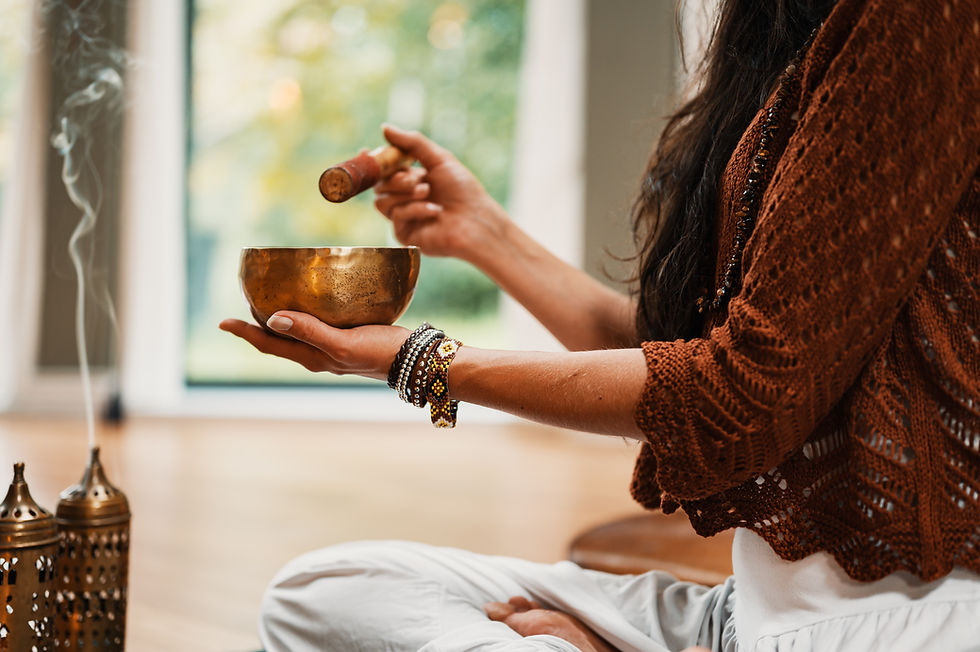Everything you need to know about Turmeric!
- Dr. Sepi Sefy

- Dec 29, 2022
- 4 min read
Golden-orange turmeric is known for adding colour, flavour, and nutrition to foods. Turmeric, a relative of ginger, is derived from the rhizome (root) of an Asian native plant and has been used in cooking for centuries. In China and India, it has also been used in ayurvedic and other forms of traditional medicine.
Why is turmeric beneficial?

Curcumin, a naturally occurring polyphenol, has antioxidant and anti-inflammatory properties and is the active ingredient in turmeric.
Curcumin possesses numerous biological activities, not all of which are fully comprehended. Similar to other colourful plant-based foods, turmeric is abundant in phytonutrients, which may protect the body by neutralizing free radicals (pollution, sunlight) and shielding cells from damage. Diets rich in plant-based foods are associated with the prevention of cancer and cardiovascular disease.
Inflammatory conditions such as arthritis and other joint disorders, colitis, allergies, and infections would benefit from the addition of turmeric to the diet of anyone attempting to control inflammation. Although it is more effective taken as a blend prescribed by a qualified Naturopathic Practitioner.
The Science of Turmeric
Studies on turmeric and its constituents, including curcumin, have been conducted.
People with osteoarthritis reported less joint pain when consuming turmeric in recipes, according to some research. Turmeric's effect on mood disorders, depression, and dementia has also been investigated, but studies have been small, so more research is required to determine if there is a benefit.
In addition to these conditions, studies indicate that turmeric may be beneficial for:
Inflammation
Degenerative eye disorders
Obesity syndrome
Arthritis
Hyperlipidemia (cholesterol in the blood) (cholesterol in the blood)
Anxiety
aching muscles after exercise
Renal health

Turmeric Dietary Supplements
Supplements containing turmeric are probably not a good idea. As wonderful as the nutritional benefits of turmeric can be, more curcumin is not necessarily better, and excessive amounts can be dangerous.
For example, turmeric supplements may increase your risk of kidney stones, especially if your family has a history of this condition. Curcumin supplements contain much higher concentrations of the compound than would be consumed by consuming turmeric-flavoured foods or turmeric tea.
Curcumin and other active ingredients in turmeric are not bioavailable, which means they are not easily absorbed by the body. Additionally, the digestive process breaks down and quickly eliminates these beneficial compounds.
Therefore, regularly incorporating the spice into your meals is a safe way to increase your intake. Combining turmeric with black pepper may enhance the body's absorption of turmeric's beneficial compounds. When piperine from black pepper is combined with curcumin, its bioavailability is increased by a factor of 2,000%.
It is preferable to obtain curcumin and the majority of other nutrients from whole foods if taken for nutritional value but if one is suffering from an ailment a visit to a Naturopathic Practitioner is advised.
Supplements to turmeric and Drug Interactions
Certain medications may interact with curcumin in high doses, as found in concentrated turmeric supplements.
Turmeric supplements can reduce the pain-relieving effects of indomethacin, aspirin, ibuprofen, and acetaminophen.
Consult your physician before taking turmeric supplements if you are undergoing chemotherapy, and especially if you are taking the following chemotherapy agents:
Camptothecin
Mechlorethamine
Doxorubicin\sCyclophosphamide
Supplements containing turmeric or curcumin can increase the risk of bleeding in patients taking warfarin.
People taking the immunosuppressive drug tacrolimus may experience increased side effects if they consume large quantities of curcumin.

Turmeric's Adverse Effects
If you are allergic to turmeric, consuming it may cause a rash, hives, or abdominal pain. Turmeric is generally safe when consumed in tea or food.
Most adverse effects are associated with supplements containing extremely high concentrations of curcumin (pills, capsules and gummies).
How to Appreciate Turmeric
Some types of mustard use turmeric as a natural colouring agent, and it is an ingredient in curry powder. We particularly enjoy the earthy flavour of turmeric on its own and that it adds depth of flavour and a pleasing colour to vegan Thai and other vegan Asian dishes, stews, and chilis.
Tumeric can be purchased whole and frozen up to 6 months.
Turmeric's yellow pigment can stain countertops and fabrics, so you should be cautious when working with it. On many surfaces, stains can be removed using mild abrasives or chlorine-based cleaners.
Turmeric Tea
Like ginger, turmeric root can be brewed into a healthy and delicious tea.
To make tea;
2 tablespoons of chopped turmeric root or 2 teaspoons of turmeric powder
1–2 cups water should be brought to a boil
Reduce to a simmer for five minutes, then strain.
The flavour of turmeric tea can be altered by adding lemon and/or agave
Vegan soup with pumpkin, butternut squash, and curry
Ingredients
Coconut oil
1 pound of peeled and diced pumpkin and butternut squash.
2 diced shallots 2–3 teaspoons Thai red curry paste
2 tablespoons of turmeric powder or 2 tablespoons of grated turmeric root
4 cups of vegetable broth or stock
a single can of unsweetened coconut milk (can use full fat or low fat)
Sal and poivre
Directions
Pumpkin and butternut squash should be roasted at 400 degrees for 10 to 15 minutes with olive oil, salt, and pepper. When they are fork tender, they are cooked.
In a large stockpot or Dutch oven, cook shallot, red curry paste, and turmeric for 8 to 10 minutes in olive oil. The shallot should be translucent and soft.
Add vegetable broth, roasted butternut squash, and pumpkin.
Simmer for a minimum of 20 minutes.
Adjust the flavour with salt, pepper, or red curry paste.
Coconut milk is added and simmered.
Blend either with stand blender or immersion blender.

By Dr. Sepi Sefy PhD whom specialises in Herbal Medicine of Ayurveda, Traditional Chinese & Western Herbal Medicine, alongside of Yoga, Nutrition and Phytotherapy.



Comments